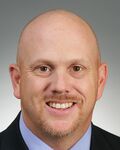Course Description
Despite advancements in new treatments for major depressive disorder, individual therapies and accepted early treatment strategies continue to be associated with remission rates that fail to meet the desired outcomes. Treatments have expanded beyond the traditional pharmacologic options of tricyclic antidepressants (TCAs), selective serotonin reuptake inhibitors (SSRIs), and monoamine oxidase inhibitors (MAOIs) to include targeted receptor effects at both serotonergic and noradrenergic receptors, including receptor modulation. While both “old” and “new” treatments are effective and demonstrate response, a large number of those treated will continue to demonstrate a lack of optimal response or treatment resistance.
Data from the landmark STAR*D trials taught that only modest rates of remission were able to be achieved with traditional treatments, switch, and augmentation strategies that were commonly employed. Since the STAR*D studies, a number of new treatments have been developed and marketed along with the expanded use of second-generation antipsychotics in patients not achieving an optimal positive response to single agent therapy. In this program, we will review the progression of antidepressant development, traditional treatment approaches, and new considerations on how best to help patients achieve remission.
Learning Objectives
- Outline traditional treatment approaches for major depression.
- Identify gaps in medication management of depression that prevents patients from achieving optimal outcomes and reaching remission.
- Explain mechanistic theories as to how different second-generation antipsychotics offer effective treatment options in patients who do not respond favorably to antidepressant monotherapy.
- Summarize the findings of available clinical trial data regarding the safety and efficacy of second-generation antipsychotics as add-on treatments to existing antidepressant therapy.
Target Audience
If you are a pharmacist, nurse practitioner or other healthcare professional involved in the comprehensive medication management of psychiatric and/or neurological patients, we invite you to participate in this online course.
Faculty


View biographical information
Christoph U. Correll, MD
Professor of Psychiatry and Molecular Medicine
The Donald and Barbara Zucker School of Medicine at Hofstra/Northwell, New York, USA
Professor and Chair, Child and Adolescent Psychiatry
Charité – Universitätsmedizin, Berlin, Germany
Faculty Disclosures
Grant/Research Support: Dr. Correll: Janssen, Takeda
Consultant: Dr. Correll: AbbVie, Acadia, Alkermes, Allergan, Angelini, Aristo, Boehringer-Ingelheim, Cardio Diagnostics, Cerevel, CNX Therapeutics, Compass Pathways, Darnitsa, Gedeon Richter, Hikma, Holmusk, IntraCellular Therapies, Janssen/J&J, Karuna, LB Pharma, Lundbeck, MedAvante-ProPhase, MedInCell, Merck, Mindpax, Mitsubishi Tanabe Pharma, Mylan, Neurocrine, Newron, Noven, Otsuka, Pharmabrain, PPD Biotech, Recordati, Relmada, Reviva, Rovi, Seqirus, SK Life Science, Sunovion, Sun Pharma, Supernus, Takeda, Teva, and Viatris.
Financial: Dr. Correll: Stock options: Cardio Diagnostics, Mindpax, LB Pharma and Quantic; Royalties: UpToDate
My presentation will include discussion of off-label, experimental, and /or investigational use of drugs or devices: Lurasidone for MDD with mixed features
Christoph Correll is Professor of Psychiatry at The Zucker School of Medicine at Hofstra/Northwell, New York, USA, and also Professor and Chair of the Department of Child and Adolescent Psychiatry, Charité University Medicine, Berlin, Germany. He completed his medical studies at the Free University Berlin, Germany, and Dundee University Medical School, Scotland. He is board certified in general psychiatry and child and adolescent psychiatry, having completed both residencies at The Zucker Hillside Hospital in New York. Since 1997, he has been working and conducting research in New York, USA, and since 2017 he is also working in Germany again.
Steven C. Stoner, PharmD, BCPP
Associate Dean for Student Affairs
Clinical Professor, Division of Pharmacy Practice and Administration
University of Missouri at Kansas City School of Pharmacy
Kansas City, MO
Faculty Disclosures
Consultant: Sunovion Pharmaceuticals; Alkermes Pharmaceuticals; Otsuka Pharmaceuticals
Speakers Bureau/Educational Services: Neurocrine Pharmaceuticals
My presentation will include discussion of off-label, experimental, and /or investigational use of drugs or devices: Adjunctive therapies for depression including levothyroxine, lithium, unapproved second generation antipsychotics.
Steve’s career started at the University of Nebraska School of Pharmacy (1994) followed by completion of a residency and fellowship with the UMKC affiliated programs at Western Missouri Mental Health Center (1994-1996) in Kansas City, Missouri. He joined the UMKC School of Pharmacy in 1996 where he is currently a Clinical Professor and Associate Dean for Student Affairs. He has maintained a consultant role with the Northwest Missouri Psychiatric Rehabilitation Center (NMPRC) where he had previously practiced for 12 years and served as the Program Director of an ASHP Accredited Residency Program for 10 years. While at NMPRC he completed a number of research projects and publications in the areas of bipolar disorder, depression, and schizophrenia. Steve also serves as a clinical expert on the Developmental Disabilities and the Dementia for the Missouri Telehealth Network & Show-Me ECHO program. He has received the NCDEU-NIMH Young Investigator Award, the CPNP Clinical Practice Award, and a number of Preceptor and Teacher of the Year awards with the UMKC School of Pharmacy. In addition he has completed the AACP Academic Leadership Fellowship Program and the University of Missouri’s Presidential Academic Leadership Development Program. Steve has served as the Chair of the Section of Teachers of Pharmacy Practice with AACP in 2014-2015 and as the Chair of the Council of Sections in 2017-2018. Steve was also named the Missouri Society of Health System Pharmacists, Pharmacist of the Year in 2015.
Course Requirements
To receive ACPE credit for this session, you must:
- Register for this course.
- Review the full content of the activity and reflect upon its teachings.
- Complete the evaluation at the end of the activity.
- Provide the necessary details in your profile to ensure correct reporting by AAPP to CPE Monitor.
Continuing Education Credit and Disclosures
Activity Dates: 10/06/2022 - 10/06/2025
ACPE Contact Hours: 1
ACPE Number: 0284-0000-22-080-H01-P (Knowledge)
Nursing Credit Reminder: Note that ACPE credit is accepted for ANCC Certification Renewal and AANPCB advanced practice provider content. For specific questions related to your organization's acceptance of ACPE continuing education units, please contact your organization directly.
 The College of Psychiatric and Neurologic Pharmacists is accredited by the Accreditation Council for Pharmacy Education as a provider of continuing pharmacy education.
The College of Psychiatric and Neurologic Pharmacists is accredited by the Accreditation Council for Pharmacy Education as a provider of continuing pharmacy education.
AAPP owns the copyright, is licensed or has received permissions for use of, or is otherwise permitted to use copyrighted materials within any CPE activity. Authors and speakers are required to obtain necessary copyright permissions for content in CPE activities. AAPP complies with copyright laws and regulations.
View disclaimer and disclosure of off-label use
Off-Label Use: This educational activity may contain discussion of published and/or investigational uses of agents that are not indicated by the FDA (see faculty information). The opinions expressed in the educational activity do not necessarily represent the views of AAPP and any educational partners. Please refer to the official prescribing information for each product for discussion of approved indications, contraindications, and warnings.
Disclaimer: Participants have an implied responsibility to use the newly acquired information to enhance patient outcomes and their own professional development. Any procedures, medications, or other courses of diagnosis or treatment discussed or suggested in this activity should not be used by clinicians without evaluation of their patient’s conditions and possible contraindications on dangers in use, review of any applicable manufacturer’s product information, and comparison with recommendations of other authorities. Please refer to the official prescribing information for each product for discussion of approved indications, contraindications, and warnings.
Presentation-Specific Disclosure: Dr. Correll: My presentation will include discussion of off-label, experimental, and /or investigational use of drugs or devices: Lurasidone for MDD with mixed features Dr. Stoner: My presentation will include discussion of off-label, experimental, and /or investigational use of drugs or devices: Adjunctive therapies for depression including levothyroxine, lithium, unapproved second generation antipsychotics.
View fair balance and integrity statement
It is the policy of AAPP to ensure independence, balance, objectivity, scientific rigor, and integrity in continuing education activities. Those involved in the development of this continuing education activity have made all reasonable efforts to ensure that information contained herein is accurate in accordance with the latest available scientific knowledge at the time of accreditation of this continuing education activity. Information regarding drugs (e.g., their administration, dosages, contraindications, adverse reactions, interactions, special warnings, and precautions) and drug delivery systems is subject to change, however, and the reader is advised to check the manufacturer’s package insert for information concerning recommended dosage and potential problems or cautions prior to dispensing or administering the drug or using the drug delivery systems.
Fair balance is achieved through ongoing and thorough review of all materials produced by faculty, and all educational and advertising materials produced by supporting organizations, prior to educational offerings. Approval of credit for this continuing education activity does not imply endorsement by AAPP for any product or manufacturer identified.
